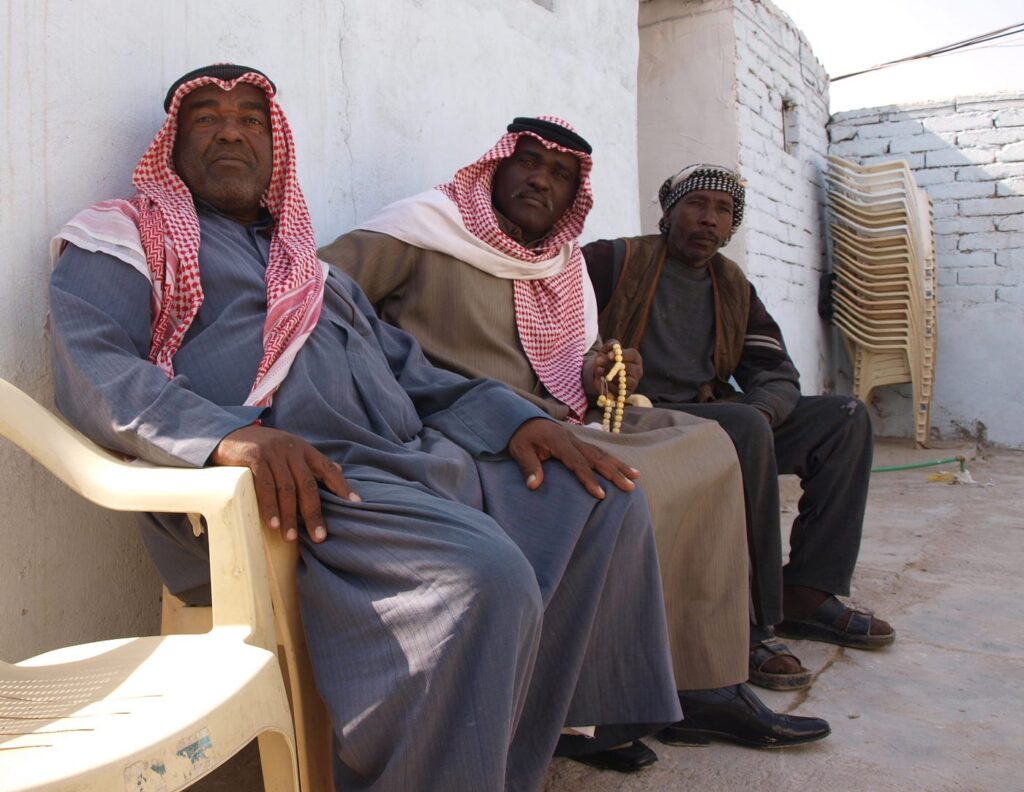A Voice for Black Iraqis: Recognition for their Culture and Struggles

By: Yaara Aleissa / Arab America Contributing Writer
History of African Iraqi’s
Over the Abbasid Empire’s five-century rule, they left an unforgettable mark on the cities of Iraq. Both, for the good and bad. During the empire’s rise in power, they were focused on promoting commerce, industry, arts, and science. Of the Islamic empire’s many innovations, they also fueled havoc.
Within the Abbasid empire, the city of Basra was a prominent hub for the slave trade. Many Africans coming in were either free taking jobs as sailors or enslaved. Yet, both would face a future of hardship and discrimination.
African slaves brought into the country typically worked on large plantations under dire working conditions. With harsh treatment and cruel suffering, the empire began to face its own consequences.
In 869, the Zanj Revolt took place. African slaves in Basra were referred to as Zanj. The revolt was led by Ali ibn Muhammad who was neither a slave nor a native to the region. He had promised the slaves that he would be on their side for freedom and justice.
Ali ibn Muhammad and his followers attacked the plantations where the slaves worked and freed thousands of them. It took the empire two years to stop the revolt. Even then, the Abbasid Empire suffered greatly on an economic level. They had put so much spending on the military and resources to stop the revolts that it was too far to undo.
Marking their place
In southern Iraq, on the outskirts of Basra and Zubair, is the main residence for many Black Iraqis today. Some also reside in the populated capital Baghdad. With a population of 1.5 to 2 million residents. Each battling racial inequities that date back to their early presence in the Abbasid empire.
Slavery, in Iraq, was abolished in the 19th century in Article 14 of the 2005 Iraqi Constitution which grants “equality without racial-based discrimination”. Yet that isn’t completely the case. Systemic discrimination, marginalization, and a lack of voice in political leadership are some of the most prominent issues facing the community of Black Iraqis.
Even with these difficulties, it hasn’t silenced activists despite the harsh repercussions they face for being vocal about their struggles. Many Black Iraqis continue to push for their voice to be heard and fairly acknowledged.
After the fall of Sadam Hussain in 2003, the Free Iraqi Movement came to rise in 2007 being the first political organization to defend Black Iraqis. This organization was spurred by the election of Barack Obama as a future president of the United States. It inspired many Black Iraqis to run for office in Basra and have a more prominent voice.
In 2013, the founding member of the Free Iraqi Movement, Jalal Thiyab, was murdered in the city of Iraq. This came after the run for office in Basra where none of the members received a position. However, the sheer act of running was enough to cause an uproar.
An identity worth celebrating
Iraq is a melting point of different ethnic, religious, and cultural communities. However, many of these individuals still look the “same” on a basic level. They can blend into each other and their differences remain invisible. Black Iraqis on the other hand don’t have that luxury. They become ostracized, a line drawn to divide them from the larger community of Iraqis.
Although, this doesn’t mean that their African heritage should be erased upon their current residence in Iraq. Some Iraqis have claimed to value their fellow Black Iraqi citizens by expressing “We don’t have black and white in Iraq”. Instead replacing the terms with “asmar” or “abu samra”, which means tanned or brown in Arabic.
These terms take away from the identity of Black Iraqis further marginalizing them. Many respected Black Iraqis Dr. Thawra Yousif, Dr. Abdulkareem Aboud, and Dr. Abdel-Zahra Sami Farag hold their race and cultural heritage with pride and honor. Black Iraqis aren’t looking to assimilate but rather be accepted as they are.
Cultural significance
The culture of Black Iraqis is vibrant. With a blend of Sub-Saharan and East African traditions alongside Mesopotamian rituals. With practices of chanting, drumming, and tambourine performances. Alongside continual practice of African-derived healing and exorcism ceremonies.
Their language compromises two native tongues blended into one, Arabic and Swahili. However, the body of literature to represent this community has been limited to human rights concerns rather than the focus on their rich culture.
Despite their social conditions and their lower economic class, this has not hindered their artistic diversity. Their strength in culture and religion has allowed them to empathize and build bonds with other discriminated communities such as the Kurds. Further exhibiting the resilience of Black Iraqis. Their dedication and triumphs need to be celebrated. A country is nothing without its people and the community of Black Iraqis has already proven they have much to provide.
Check out Arab America’s blog here!









